FuelCell
Latest
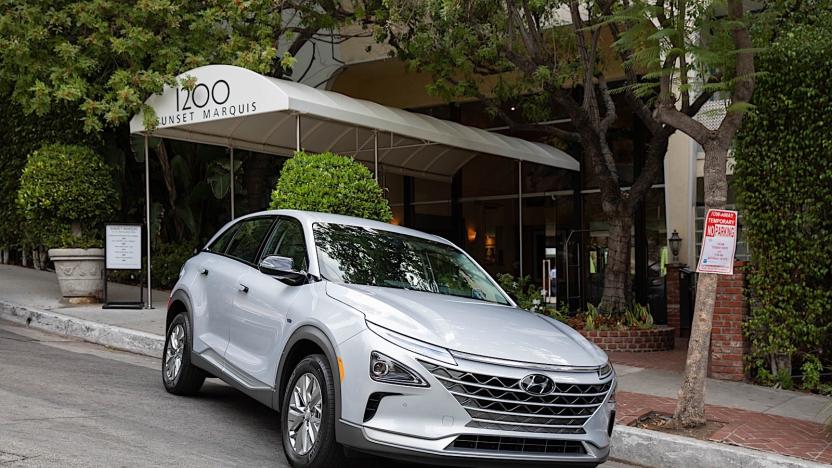
Behind the wheel of Hyundai's Nexo Fuel Cell EV
Electric vehicles have yet to take over the world due to a pair of shortcomings inherent to the technology: limited range and long refueling times. Hyundai's hydrogen-powered 2019 Nexo FCEV addresses both issues -- all while it cleans the atmosphere around you like a giant, driveable Coway Mighty.

Hyundai's Nexo fuel cell SUV hits California dealers by end of 2018
Hyundai's second-generation hydrogen fuel cell car will soon be more than just a trade show darling. The automaker has formally introduced the 2019 Nexo SUV ahead of its late 2018 launch in the US, complete with details on its trim levels and availability at dealerships. The vehicle is only confirmed to be coming to two southern California dealerships by the end of 2018 (Van Nuys' Keyes Hyundai as well as Tustin Hyundai), with San Jose's Capitol Hyundai due in early 2019. The upshot? You might get more car than you were expecting.
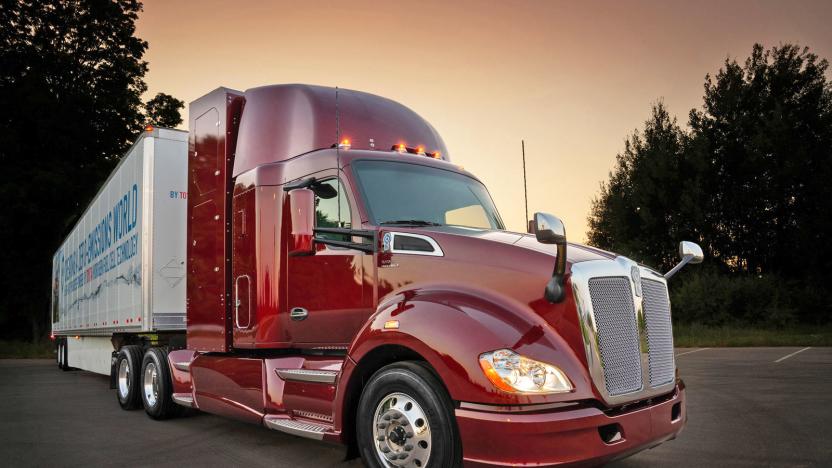
Toyota's latest hydrogen-powered semi boasts 300-mile range
Toyota has made a lot of progress on its hydrogen fuel cell semi truck since unveiling the Alpha model in 2017. The automaker has unveiled a Beta version of its Project Portal semi that promises huge improvements. For one, the zero-emissions vehicle now drives 300 miles on a hydrogen tank instead of roughly 200 -- rather important if it's going to be hauling cargo all day. It's also more maneuverable, and manages to create more cab space (including a sleeper cab) thanks in part to a "unique fuel cabinet combination."

Hyundai and Audi team up on hydrogen fuel cell technology
Hyundai and Audi have reached a deal that will allow the two to share their hydrogen car technology, Reuters reports. Both companies will have access to the other's intellectual property and they'll share components, with the goal being to push hydrogen fuel cell-powered vehicles into the mainstream. So far, they've lagged behind battery EVs, which are currently cheaper and benefit from more charging stations.
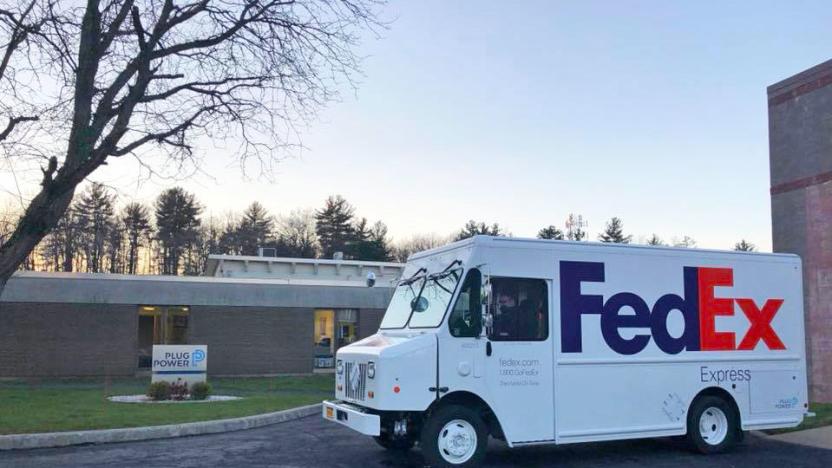
FedEx adds a hydrogen fuel cell van to its fleet
Cars are bad for us in pretty much every respect, especially since fossil fuel use contributes around 65 percent of all climate-changing emissions. Since delivery companies zoom around our neighborhoods with diesel-belching vans every day, package vans need to get clean, and fast. It's why FedEx is making a big deal that it's just taken delivery of its first hydrogen fuel cell electric vehicle.
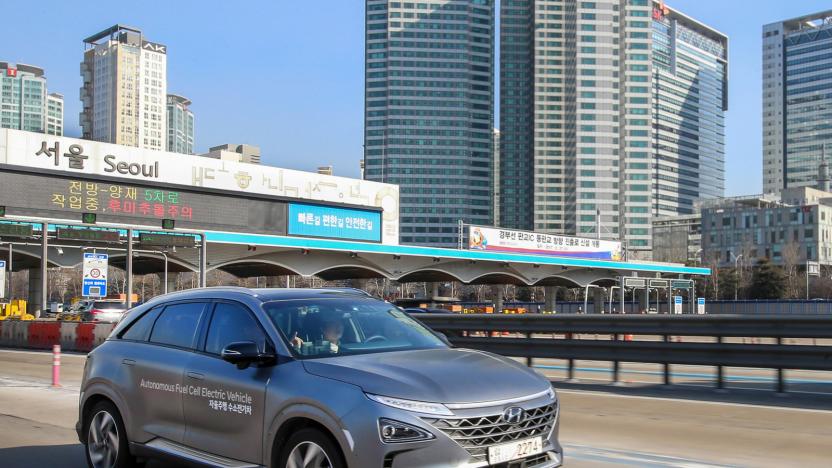
Hyundai's self-driving fuel cell cars complete a record highway trip
Future self-driving cars don't have to be pure electric vehicles, and Hyundai is determined to prove it. The automaker just had a five-strong fleet of Level 4 autonomous hydrogen fuel cars drive themselves 118 miles from Seoul to the Winter Olympics' home venue of Pyeongchang. That's the longest any self-driving vehicle has traveled at highway speeds (around 62-68MPH), the company claimed. Previously, they had to putt around at slower speeds, and frequently on limited road sections.
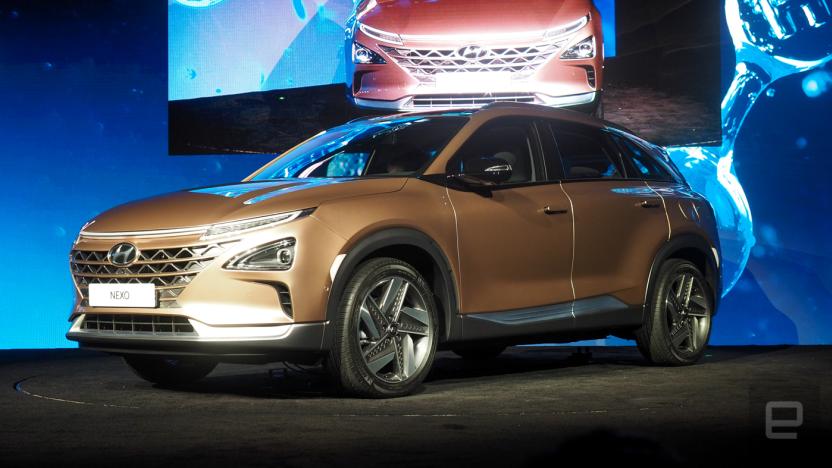
Hyundai unveils its next generation fuel-cell vehicle
While electric cars and hybrids dominate the alternative vehicle headlines, automakers continue to hedge their bets with fuel cell vehicles. At CES, Hyundai unveiled its next offering, the Nexo fuel-cell SUV with a 350 mile range and a 55 MPGe rating. The new SUV will start arriving in California dealerships later this year.

Hyundai and Volkswagen team with Google's former self-driving lead
Both Hyundai and the Volkswagen Group announced today that they are partnering with self-driving technology company Aurora Innovation and will be incorporating the company's autonomous driving systems into their own vehicles. Hyundai will be working the technology into its latest fuel cell vehicle, debuting next week at CES, while the Volkswagen Group says it could be incorporated into a number of its brands' vehicles, including self-driving Sedric pods, shuttles, delivery vans or trucks.
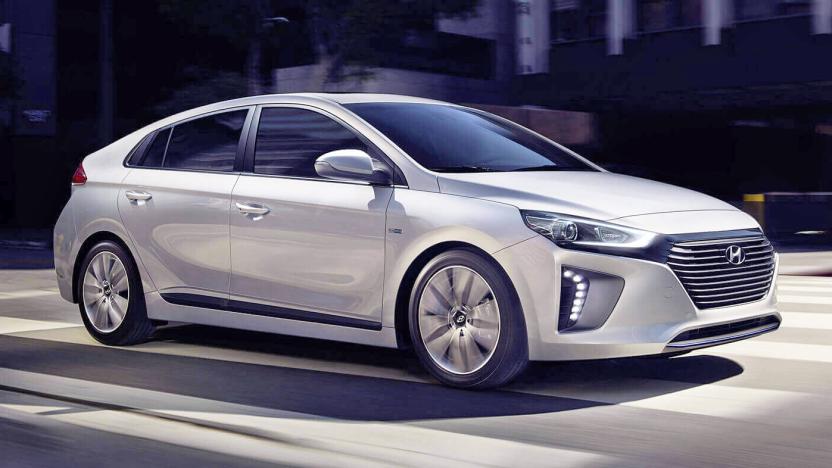
Hyundai plans 38 EVs as it tries to catch up with rivals
Hyundai and its affiliate Kia have revealed ambitious plans to bring as many as 38 green cars to market in the next eight years, with seven models slated for launch in the next five. Most of them will be electric vehicles, senior vice president Lee Ki-sang told reporters last week, adding to the company's current green line-up of the Hyundai Ioniq, Kia Soul, several plug-in hybrids and the hydrogen-based fuel-cell ix35.

Honda and Toyota are still backing hydrogen fuel-cell cars
Toyota, Honda and Nissan are partnering with eight industrial firms to make a fresh push on hydrogen refuelling stations in Japan. The group wants to build 80 stations within the first four years of the partnership -- which is expected to last a decade -- with nine in operation by March 2018. The plan would nearly double the 91 stations currently in the country.

Rare metals could make hydrogen-powered cars more efficient
Despite being much faster to fuel up than EVs, hydrogen fuel cell-powered cars have largely failed to make an impact. There are various reasons for that like the crazy expensive infrastructure and hydrogen's explosiveness, but the main one is that from well to wheels, hydrogen cars are much less efficient than EVs. Now, researchers from Spain and Norway have unveiled a new method to convert methane to hydrogen with almost no loss of energy, perhaps making the vehicles (slightly) more feasible.

What you need to know before buying an EV
It's an exciting time for the automotive world. Over the past 15 years, cars have gone from relatively dumb machines that get us to our destinations to electrified, connected gadgets. In the coming decade, the technology being developed by traditional automakers and nascent upstarts will not only transform the way we drive, but change how cities operate.

Daimler and HPE want to power green data centers with hydrogen
Hydrogen fuel cells have mainly been used to power vehicles so far, but they could soon find another use: the server farms powering your internet services. Daimler, HPE, Power Innovations and the National Renewable Energy Laboratory are expanding fuel cell use to "micro-grids" inside data centers. Solar and wind power would provide the bulk of the energy, but fuel cells would fill in the gap when power demand is too high or an outage leaves no other choice. Companies wouldn't have to rely quite so heavily on diesel generators or other not-so-eco-friendly backups to cope with demand. And unlike battery backups, there's no limit -- the fuel cell can keep running as long as there's hydrogen.
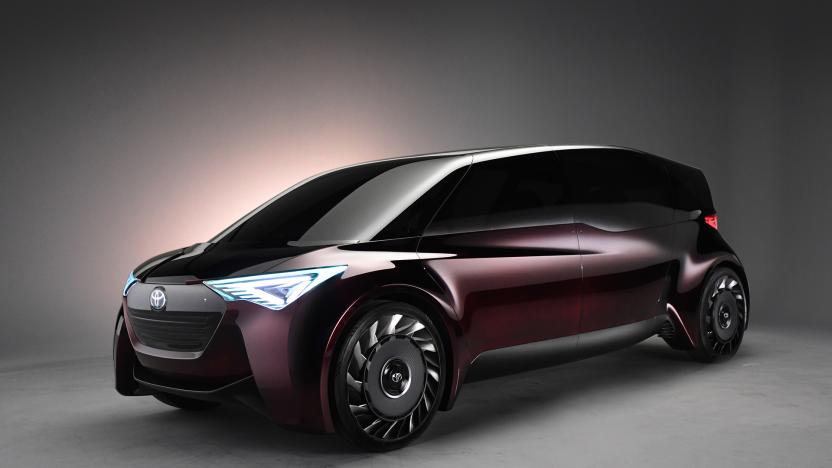
Toyota applies long range fuel cell tech to its latest minivan concept
Toyota's next concept car, which it's debuting at the Tokyo Motor Show next week, isn't yet another electric vehicle. The 'Fine-Comfort Ride' runs on hydrogen fuel cells (remember those?) with an intended range of 1,000 km (620 miles) per charge, and can be refuelled in about three minutes. While it looks like a futuristic minivan, the vehicle is geared for internal comfort and entertainment while emitting no carbon dioxide or similar pollutants.

Chevy is building a hydrogen fuel-cell transport vehicle for the Army
Chevy's venture into working with the Army on alternative-fuel vehicles isn't stopping with the Colorado ZH2. No, the pair are pushing forward with the Silent Utility Rover Universal Superstructure (SURUS) that takes the ZH2's hydrogen fuel cell power plant and mates it with what Defense One describes as a "flatbed truck trailer or even a railroad flatcar." The idea behind SURUS -- named for Hannibal's war elephants -- is to be an adaptable form of transport that can do anything from carrying injured troops to moving large amounts of cargo like diesel-powered generators in the theater of war.
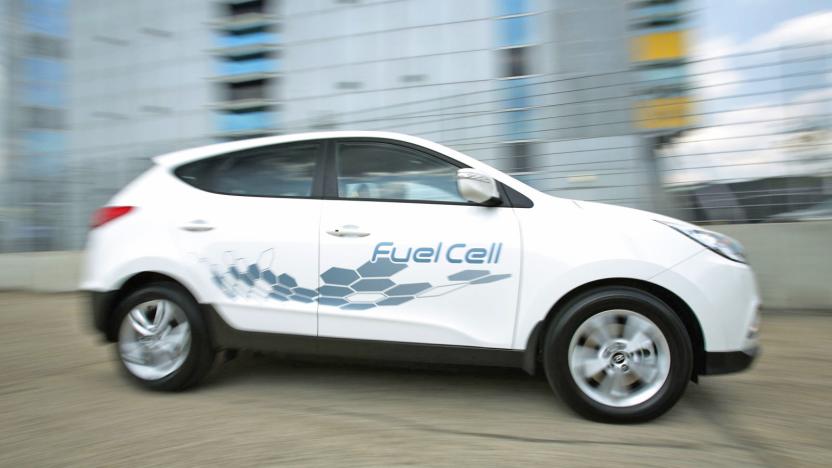
Hyundai shifts focus from fuel cell cars to EVs
Fuel cell champion Hyundai is changing direction with its product strategy, announcing that it will now focus on electric vehicles. The shift comes after Tesla and other electric vehicle manufacturers have gained traction in the field, and following Chinese government backing for battery-powered cars. "We're strengthening our eco-friendly car strategy, centering on electric vehicles," executive vice president Lee Kwang-guk told a news conference, adding that the technology was "realistic". Hyundai now plans to have an electric sedan on the road by 2021, with a range of 500km. Also on the cards is an electric version of its 390km-range Kona SUV, due in the first half of 2018.

Bacteria could lead to cleaner methane power
Methane as a greenhouse gas isn't all that eco-friendly when used for power, but scientists might have a way to keep the damage to a minimum. Penn State researchers have crafted microbial fuel cells that can convert methane into electricity right at the well, without leaking loads of gas into the atmosphere by sending it through pipes. The team created a cocktail of bacteria (including a synthetic microbe you can't normally grow) that produces the necessary materials to grab and transport electrons from the methane. Not only is this a relatively clean process, the bacteria can run on waste products -- it might clean up the site as it generates power.
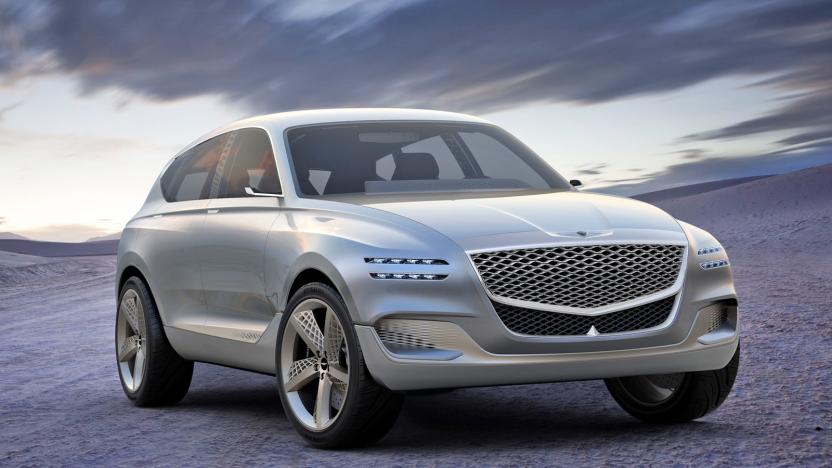
Prototype Genesis SUV melds hydrogen and plug-in power
It hasn't even been two years since Hyundai spun out its Genesis luxury badge as a separate division, but the new group is already making a name for itself. Genesis has unveiled its first experimental SUV, the GV80 Concept, and the prototype clearly pushes a few boundaries. For one, it's a plug-in fuel cell hybrid. The company isn't talking performance figures at this point, but the combination of electric and hydrogen power promises zero-emissions driving while still delivering a healthy range.

Honda tries salvaging the Clarity with electric, hybrid options
For years now, the Honda's Clarity line has been about figuring out the best way to bring to hydrogen fuel cell cars to market. As you probably guessed, it's been a pretty slow process. To wit: Honda launched its Clarity Fuel Cell in California in late 2016, and there's something like 100 of them rolling around the state right now. Now, that ride has some more company: Honda revealed new plug-in hybrid and battery-powered models here at the New York Auto Show.
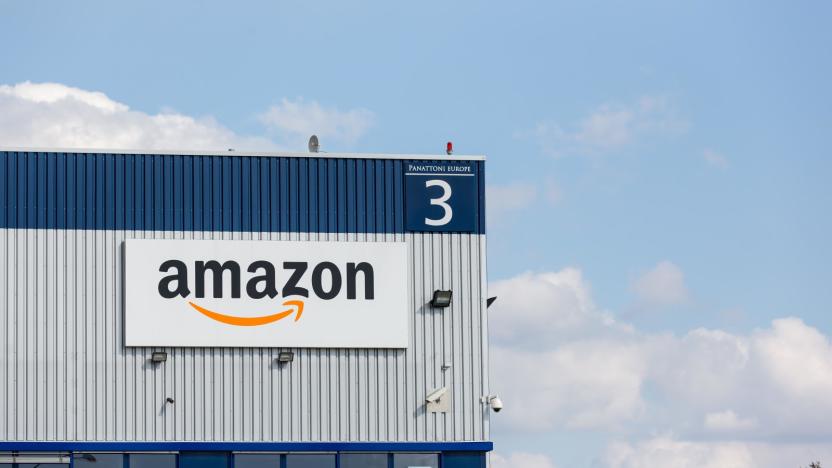
Hydrogen-powered forklifts could speed up your Amazon deliveries
Amazon will replace its forklifts' batteries in 11 warehouses with an alternative power source: hydrogen fuel cells (HFC). The e-retail giant is investing millions in the technology, acquiring the right to buy up to 23 percent of hydrogen fuel cell maker Plug Power. In a press release, Plug Power has revealed that the tech titan will spend $70 million this year on hydrogen fueling infrastructure, the fuel itself and fuel cells for forklifts and for backup power.










